 | TODAY IN SCIENCE HISTORY NEWSLETTER - 24 APRIL |
| Feature for Today |
 On 24 Apr 1743, Edmund Cartwright was born, the English inventor of the power loom which revolutionized weaving, changing it from a manual process to a mechanical one. On 24 Apr 1743, Edmund Cartwright was born, the English inventor of the power loom which revolutionized weaving, changing it from a manual process to a mechanical one.His contribution to the Industrial Revolution was immense, yet it is remarkable that he began his life taking holy orders, and publishing poems, and followed those pursuits until his fortieth year. It was only then that his interest in invention was awakened. The success of his power looms threatened the livelihoods of manual workers, and he suffered losses from mobs attacking them. Despite holding patents, he ultimately derived little long-term benefit, but was granted a sum by Parliament to live on in his later years, for his invention's service to the nation. You can learn more by reading this short biography of Edmund Cartwright, a chapter from Self-Made Men (1858). |
| Book of the Day | |
| |
| Quotations for Today | |
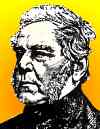 | "Now having (I know not by what accident) engaged my thoughts upon the Bills of Mortality, and so far succeeded therein, as to have reduced several great confused Volumes into a few perspicuous Tables, and abridged such Observations as naturally flowed from them, into a few succinct Paragraphs, without any long Series of multiloquious Deductions, I have presumed to sacrifice these my small, but first publish'd, Labours unto your Lordship, as unto whose benign acceptance of some other of my Papers even the birth of these is due; hoping (if I may without vanity say it) they may be of as much use to persons in your Lordships place, as they are of none to me, which is no more than. fairest Diamonds are to the Journeymen Jeweller that works them, or the poor Labourer that first digg'd them from Earth." |
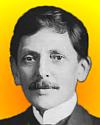 | "There are still many unsolved problems about bird life, among which are the age that birds attain, the exact time at which some birds acquire their adult dress, and the changes which occur in this with years. Little, too, is known about the laws and routes of bird migration, and much less about the final disposition of the untold thousands which are annually produced." |
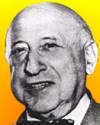 | "I have accumulated a wealth of knowledge in innumerable spheres and enjoyed it as an always ready instrument for exercising the mind and penetrating further and further. Best of all, mine has been a life of loving and being loved. What a tragedy that all this will disappear with the used-up body!" |
| QUIZ | |
| Before you look at today's web page, see if you can answer some of these questions about the events that happened on this day. Some of the names are very familiar. Others will likely stump you. Tickle your curiosity with these questions, then check your answers on today's web page. | |
| Births | |
 |  Robert Porter Allen, born 24 Apr 1905, was an American author and conservationist recognized for saving a certain large bird from extinction by discovering (1955) the nesting ground of the sole remaining flock near the Arctic Circle. He was a leader in having its habitats in Texas and Canada proclaimed as refuges. He also helped establish a working protective plan for flamingos and recommended methods of saving the small surviving colonies of roseate spoonbills, thus helping to perpetuate the species. Robert Porter Allen, born 24 Apr 1905, was an American author and conservationist recognized for saving a certain large bird from extinction by discovering (1955) the nesting ground of the sole remaining flock near the Arctic Circle. He was a leader in having its habitats in Texas and Canada proclaimed as refuges. He also helped establish a working protective plan for flamingos and recommended methods of saving the small surviving colonies of roseate spoonbills, thus helping to perpetuate the species. What bird is Allen recognized for saving from extinction? What bird is Allen recognized for saving from extinction? |
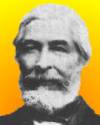 |  Jean-Charles-Galinard de Marignac, born 24 Apr 1817, was a Swiss chemist whose life work consisted of making many precise determinations of atomic weights. In 1878, he heated and decomposed some erbium nitrate obtained from gadolinite. Extracting the product with water he obtained two oxides. One, a red substance he named erbia. The discovered the second, colourless one contained a new element, which he also named. (He was later also a co-discoverer of gadolinium.) Jean-Charles-Galinard de Marignac, born 24 Apr 1817, was a Swiss chemist whose life work consisted of making many precise determinations of atomic weights. In 1878, he heated and decomposed some erbium nitrate obtained from gadolinite. Extracting the product with water he obtained two oxides. One, a red substance he named erbia. The discovered the second, colourless one contained a new element, which he also named. (He was later also a co-discoverer of gadolinium.) What element was contained in the colourless oxide extracted from gadolinite? What element was contained in the colourless oxide extracted from gadolinite? |
| Deaths | |
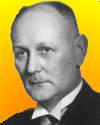 |  Gerhard Domagk (1895-1964) was a bacteriologist and pathologist who was awarded a Nobel Prize for Physiology or Medicine for his discovery (1932) of the antibacterial effects of Prontosil, the first of the sulfonamide drugs. He was the first person to refuse to accept the prize at the time of the award, although he did accept it 15 years later. Gerhard Domagk (1895-1964) was a bacteriologist and pathologist who was awarded a Nobel Prize for Physiology or Medicine for his discovery (1932) of the antibacterial effects of Prontosil, the first of the sulfonamide drugs. He was the first person to refuse to accept the prize at the time of the award, although he did accept it 15 years later. Why did Domagk at first refuse his Nobel Prize? Why did Domagk at first refuse his Nobel Prize? |
| Events | |
 |  On 24 Apr 1925, Darwin's theory of evolution was taught on this day by teacher John Scopes. He was prosecuted under a 21 Mar 1925 state law, the Butler Act, against the teaching of evolution in public schools. He was convicted and fined $100. On appeal, Scopes was acquitted on a technicality. On 24 Apr 1925, Darwin's theory of evolution was taught on this day by teacher John Scopes. He was prosecuted under a 21 Mar 1925 state law, the Butler Act, against the teaching of evolution in public schools. He was convicted and fined $100. On appeal, Scopes was acquitted on a technicality.  Which state passed the Butler act? Which state passed the Butler act? |
 On 24 Apr if a certain year, the first IBM personal computer was introduced. On 24 Apr if a certain year, the first IBM personal computer was introduced.  In which decade was the first IBM PC introduced? In which decade was the first IBM PC introduced? | |
| Answers |
When you have your answers ready to all the questions above, you'll find all the information to check them, and more, on the April 24 web page of Today in Science History. Or, try this link first for just the brief answers. Fast answers for the previous newsletter for April 23: How much; diffraction; artificial skin (treating burns); first U.S. satellite to impact on the Moon surface; a sequence of pictures lined the inside wall of a shallow spinniung cylinder, viewed through vertical slits between the images. |
| Feedback |
 If you enjoy this newsletter, the website, or wish to offer encouragement or ideas, please send feedback by using your mail reader Reply button. If you enjoy this newsletter, the website, or wish to offer encouragement or ideas, please send feedback by using your mail reader Reply button. |
--
If you do not want to receive any more newsletters, this link
To update your preferences and to unsubscribe visit this link
If you do not want to receive any more newsletters, this link
To update your preferences and to unsubscribe visit this link
! !



Δεν υπάρχουν σχόλια:
Δημοσίευση σχολίου